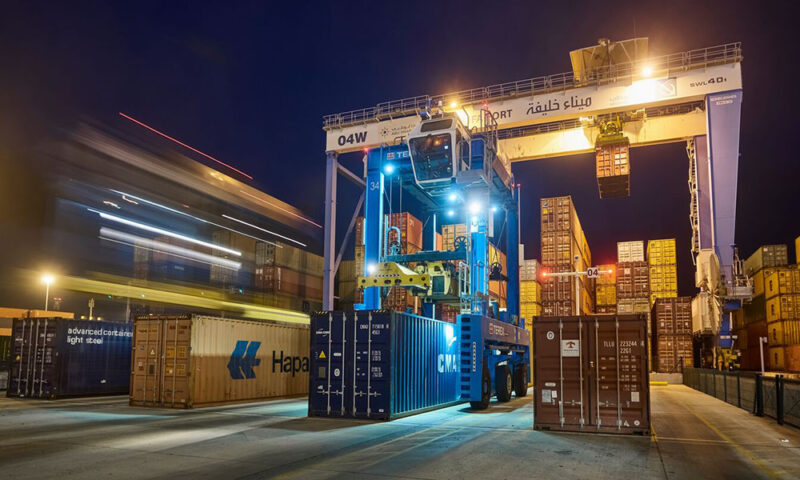
The Group has offered a case study in the successful implementation of digitalisation
Competition for shipping container traffic is intensifying as new trade agreements and alliances, geopolitical strife, supply chain constraints, and the growing economic power of the Global South alters long-established maritime routes.
AD Ports Group has offered a case study in the successful implementation of digitalisation, in its white paper titled “Digitalisation for Enhanced Efficiency: Leveraging Data for Smart Ports”. This publication serves as a valuable resource for understanding the dynamics of digital transformation in the maritime sector and its critical role in enhancing global trade efficiency.
Presented in the white paper is an in-depth analysis of the transformative impact of digital technologies on port operations that outlines strategic approaches to harnessing data for increased operational efficiency, sustainability, and competitiveness.
Multidimensional models
“This technology can store different streams of information from ports, logistics, sensors and positioning networks; and process that information in real time, which allows ports to create multidimensional models that help optimise port supply chains, reducing delays and congestion at the facilities and increasing the efficiency of the different stakeholders involved,” commented Dr. Noura Al Dhaheri, CEO of Digital Cluster & Maqta Gateway, AD Ports Group.
“Port customers and stakeholders value most the following: greater transparency, reliability, greater operational efficiency and productivity. All this cannot be achieved without digitalisation,” remarked Captain Ammar Mubarak Al Shaiba, CEO-Maritime & Shipping Cluster, AD Ports Group.
Crucially, the Group’s experts address common obstacles such as software incompatibility, cybersecurity risks, and resistance to change within the industry. In addition, providing an analysis of new regulations and legislation, including the mandatory implementation of Maritime Single Windows (MSWs) at the beginning of 2024, and the impact on port operations globally.
